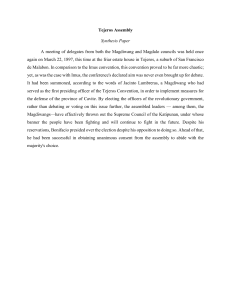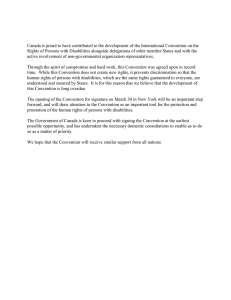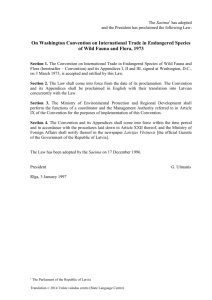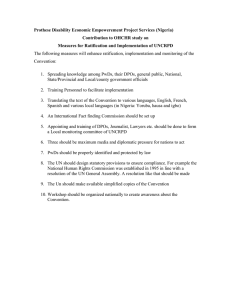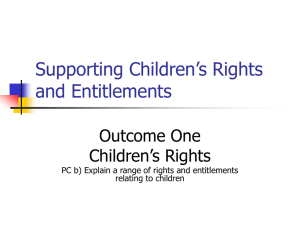Foreword
advertisement
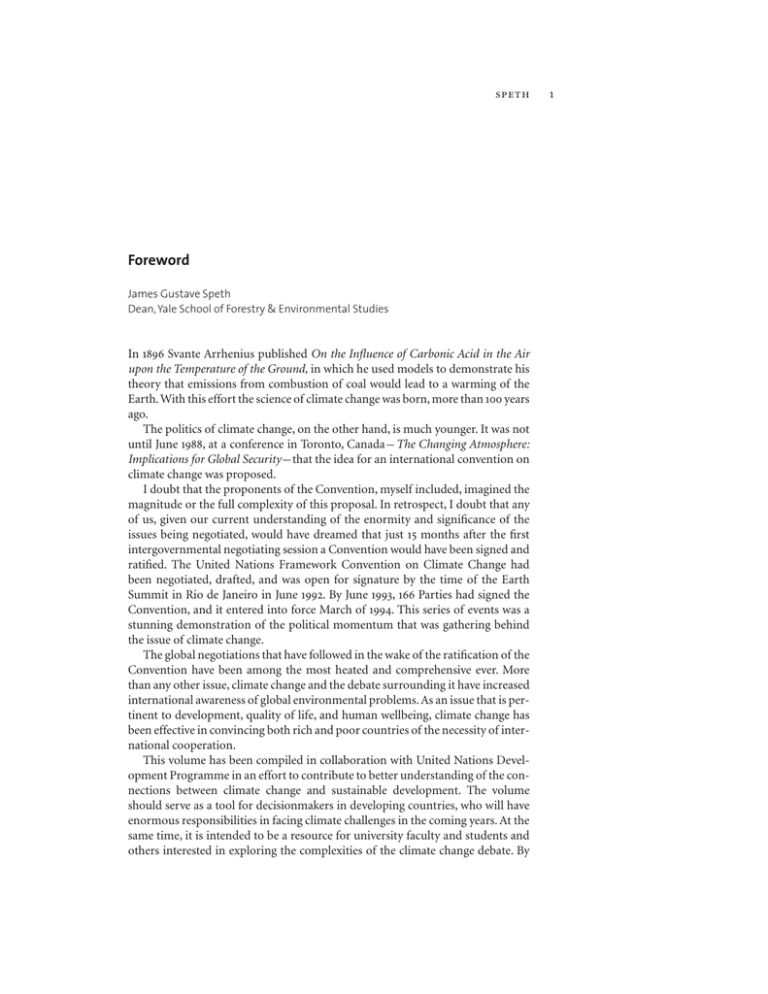
Foreword James Gustave Speth Dean, Yale School of Forestry & Environmental Studies In 1896 Svante Arrhenius published On the Influence of Carbonic Acid in the Air upon the Temperature of the Ground, in which he used models to demonstrate his theory that emissions from combustion of coal would lead to a warming of the Earth. With this effort the science of climate change was born, more than 100 years ago. The politics of climate change, on the other hand, is much younger. It was not until June 1988, at a conference in Toronto, Canada—The Changing Atmosphere: Implications for Global Security—that the idea for an international convention on climate change was proposed. I doubt that the proponents of the Convention, myself included, imagined the magnitude or the full complexity of this proposal. In retrospect, I doubt that any of us, given our current understanding of the enormity and significance of the issues being negotiated, would have dreamed that just 15 months after the first intergovernmental negotiating session a Convention would have been signed and ratified. The United Nations Framework Convention on Climate Change had been negotiated, drafted, and was open for signature by the time of the Earth Summit in Rio de Janeiro in June 1992. By June 1993, 166 Parties had signed the Convention, and it entered into force March of 1994. This series of events was a stunning demonstration of the political momentum that was gathering behind the issue of climate change. The global negotiations that have followed in the wake of the ratification of the Convention have been among the most heated and comprehensive ever. More than any other issue, climate change and the debate surrounding it have increased international awareness of global environmental problems. As an issue that is pertinent to development, quality of life, and human wellbeing, climate change has been effective in convincing both rich and poor countries of the necessity of international cooperation. This volume has been compiled in collaboration with United Nations Development Programme in an effort to contribute to better understanding of the connections between climate change and sustainable development. The volume should serve as a tool for decisionmakers in developing countries, who will have enormous responsibilities in facing climate challenges in the coming years. At the same time, it is intended to be a resource for university faculty and students and others interested in exploring the complexities of the climate change debate. By 1 2 developing a perspective on climate change that is this well-rounded, the volume should prove valuable both to those concerned about development and those focusing on the environment.

